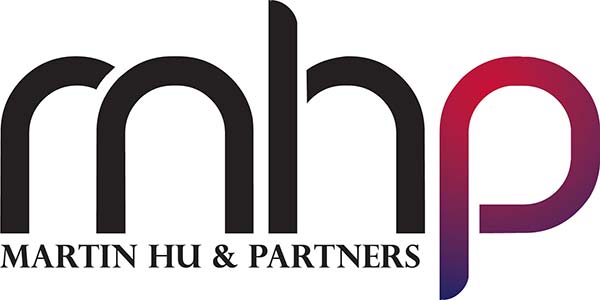In 2008, the State Administration for Industry and Commerce (SAIC) and offices at the local level (AICs) investigated and handled more than 6,000 commercial bribery cases. Although the number of cases investigated in 2009 dropped to 3,775, the amounts involved in individual cases increased markedly. Furthermore, criminal convictions for commercial bribery in sectors including pharmaceuticals, construction and government procurement have become common. The recently tried Rio Tinto case is a case in point.
This article outlines the current anti-commercial bribery legislation in China and its enforcement, so as to assist foreign enterprises and investors to make their business activities in China more compliant.
Compliance obligations

Senior Associate
Martin Hu & Partners
Foreign-invested enterprises in China and their investors are required to comply with both domestic Chinese and foreign laws on commercial bribery. This includes laws of the home countries of foreign investors that are aimed at curbing acts of commercial bribery committed outside the home country by the offshore subsidiaries of the investors.
Probably the most famous of these is the US Foreign Corrupt Practices Act. Laws and regulations of China on commercial bribery include certain provisions of the PRC Criminal Law, the PRC Anti-unfair Competition Law and the State Administration for Industry and Commerce Provisional Regulations on Prohibiting Acts of Commercial Bribery (the Provisional Regulations).
Provisions scattered
In contrast to the US Foreign Corrupt Practices Act, which is vigorously enforced, China does not have a unified anti-commercial bribery law. In addition to the PRC Criminal Law and PRC Anti-unfair Competition Law mentioned above, commercial bribery law is scattered among the PRC Pharmaceuticals Administration Law, the PRC Construction Law, the PRC Invitation and Submission of Bids Law and the Supreme People’s Court and Supreme People’s Procuratorate Opinions on the Several Issues Concerning the Application of the Law in the Handling of Criminal Cases of Commercial Bribery. Each of these laws, including the Anti-unfair Competition Law, only contains two or three articles covering commercial bribery.

Associate
Martin Hu & Partners
To date, the Provisional Regulations are the only rules that specifically target commercial bribery, but they are only “provisional” ministerial level regulations issued by the SAIC.
The legislation has also fallen quite seriously behind the times. The Anti-unfair Competition Law dates back to 1993 and the Provisional Regulations to 1996, and their vague and often unworkable provisions continue to be relied upon to address constantly sprouting new forms of commercial bribery. The fines of between RMB10,000 (US$1,500) and RMB200,000 provided for in the two laws further give rise to the negative impression that the costs of commercial bribery violations are too low.
Based on the Anti-unfair Competition Law and the Provisional Regulations, the commercial bribery addressed by Chinese laws includes all “acts of unfair competition where a business operator, with the objective of eliminating competitors and with a view to securing a trading opportunity, surreptitiously offers property or other advantages to relevant personnel of the transaction counterparty and other relevant personnel who have an influence on the transaction”.
From this it can be seen that the target includes business operators that could become the perpetrators of commercial bribery, including legal persons and other organizations, as well as entities without legal personality (such as individual proprietorships) and individuals who engage in business activities. Naturally, foreign-invested enterprises also fall within the scope of the law.
At present, Chinese laws seek to curb two major types of commercial bribery – the offering of property, and bribery by other means. Pursuant to the Provisional Regulations, the term property means “cash and physical goods, including property that a business operator offers to the other party (whether an entity or individual) in the guise of a promotion fee, publicity fee, sponsorship fee, research fee, service fee, consulting fee or commission, or through the reimbursement of various expenses in order to sell or purchase merchandise”. Bribery by other means mainly includes the “offering of benefits other than property, such as travel or fact-finding missions inside or outside China, under various guises”, mentioned in the Provisional Regulations.
Liability for violation
The principal legal liabilities arising from commercial bribery are administrative liability and criminal liability. Civil actions arising from a tort caused by commercial bribery are very rare.
In practice, in a commercial bribery case, the AIC will first conduct an investigation. After the investigation, administrative penalties may be imposed or the case may be transferred to the judicial authorities.
If the AIC, after investigation of a commercial bribery case, deems that it does not satisfy the criteria for criminal prosecution or for the opening of a case as described below, it has the authority to directly impose administrative penalties pursuant to the provisions of the Anti-unfair Competition Law and the Provisional Regulations.
The Anti-unfair Competition Law provides that if an act of commercial bribery constitutes a criminal offence, it is to be transferred to the judicial authorities for criminal prosecution. Articles 163 and 164 of the PRC Criminal Law specify the criminal penalties, including prison time and fines, that parties that offer and accept bribes are to be subject to if convicted.
If, following its investigation, the AIC determines that, pursuant to the provisions of the PRC Criminal Law and the Supreme People’s Procuratorate and the Ministry of Public Security Regulations on the Criteria for the Prosecution of Economic Crime Cases, a commercial bribery case meets the criteria for prosecution or for opening of a case, it will transfer the case to the procuratorial authority or public security authority (depending on the nature of the crime involved). Trial and sentencing will ultimately be handled by the judicial authorities.
Kenneth Kong is a senior associate and Gavin Song is an associate at Martin Hu & Partners.
胡光律师事务所
上海市龙阳路2277号永达国际大厦19楼
19/F Yongda International Tower
2277 Longyang Road
Shanghai, China
邮编 Postal code: 201204
传真 Fax: +86 21 5010 1222
www.mhplawyer.com
孔焕志 Kenneth Kong
电话 Tel: +86 21 5010 1666*922
电子信箱 E-mail: kenneth.kong@mhplawyer.com
宋鑫 Gavin Song
电话 Tel: +86 (21) 5010 1666*955
电子信箱 E-mail: gavin.song@mhplawyer.com






















